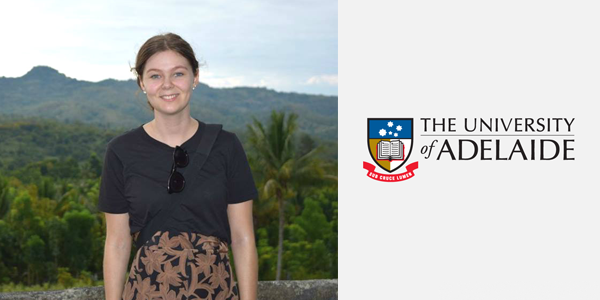
Claudia Bailey was a participant in the 2017 Development Studies Professional Practicum from The University of Adelaide. Claudia is studying a Bachelor of International Development.
Q: Why did you decide to undertake the ACICIS program?
I decided to undertake the ACICIS Development Studies Professional Practicum because I wanted to gain experience working in the development and aid sector in Indonesia. After having lived and travelled immensely in neighbouring country, Timor-Leste, I wanted to gain a better understanding of their relationship with Indonesia and to develop some Indonesian language skills when travelling on the Timor-Leste and Indonesian border.
Q: How will the Professional Practicum benefit or influence your future career? Would you like to return to Indonesia again in future?
The Professional Practicum will benefit and influence my future career because it is providing me with the experience of living and working in Indonesia. As an International Development student, it is difficult to gain graduate employment in the development sector. I am hoping to gain entry into the development sector through the AVID program, which places qualified Australians in the Asia-Pacific region for 12-24 months to develop capacity building and training with local organisations. I hope that my experience of living and working in Indonesia will provide me with an opportunity to return to Indonesia and work as an AVID volunteer.
Q: What organisation will you be interning with? (Explain your roles and responsibilities)
I am currently interning at CARE International Indonesia. I am working directly with the Warung Anak Sehat team, implementing a nutrition education program in 350 elementary schools to raise awareness of, and to eliminate child malnutrition in Indonesia. Currently 37% of Indonesian children have stunted growth and are not getting the nutrition that they need, making the work I am doing at CARE Indonesia all the more important. My role at CARE is to interview individuals and community groups from field projects in Bogor, Bandung, Ambon and Yogyakarta and to write success stories and engaging copy. I have also been developing a video which highlights the benefits of partaking in the Warung Anak Sehat program.
Q: What do you like to do in your spare time in Indonesia?
In my spare time, I like to escape from the bustling city of Jakarta and visit places where tourists rarely travel to. My favourite experience so far was venturing up to a Hindu Temple in Ciapus called Pura Parahyangan Agung. Here I meditated with the swami and focused on the inhale and exhale of each breath as I let go of my worries and concerns. It was the most ‘present’ that I have found myself feeling since being in Indonesia.
Q: Favourite Indonesian food and place to eat?
There’s a little warung that meets halfway in between my workplace and my residence. It sells the most delicious gado-gado and, if I’m honest, I have been eating it at least once a day… sometimes for breakfast, lunch or dinner. Before I came to Indonesia, past ACICIS students warned me about the lack of fruit and vegetables that I would be consuming here. But I don’t see what they saw. I see a delicious cuisine, which although is obsessed with meat, is often well-balanced with fruit and vegetables.
As a baker back home in Australia, I have a passion for cooking food and find it often just as affordable to make my own home-cooked meals with an Indonesian twist. I love experimenting with new ingredients and there is an endless amount of unheard of ingredients to test out here.
Q: What places in Indonesia have you visited during your practicum so far?
I have visited Bogor, Ciapus, Bandung and Cipanas.
Q: How does development in Indonesia differ to what you’ve seen before?
As Indonesia is now a middle income country, I often feel myself being caught in between two worlds. With Jakarta’s rising middle class, fast fashion, social media and GO-JEK’s, it is difficult to comprehend the development challenges when you see them.
I’ve met people who are being evicted from their homes because they looked ‘slum-like’, I’ve touched the hands of street children who follow me to the bus station in the hopes of gaining 200 RP (2c), and I’ve talked with mothers whose children have stunted, irreversible growth and feel powerless in the hopes of finding a solution. Inequality looked so different from what I’d seen before that it became easy to ignore, until I could no longer see it. But what I’ve learned here is that whilst Indonesia is a ‘success story’ for international development models, Indonesia has a growing list of concerns to address before it cuts off form foreign aid completely.
Q: What will you miss the most about Indonesia?
I will miss the simplicity of living in Indonesia and the lightness that I carried everywhere I went. In Indonesia, I don’t feel the struggle that I once felt, to look a certain way, or to be a particular ideal of someone, but I feel like my individuality is celebrated here, rather than oppressed. When I leave Indonesia, I will long for the value placed on relationships and people, over time and punctuality. I’ll miss how in Indonesia I feel a part of a collective, I feel a part of something bigger. Here I feel like any challenges I face, I face them together with my friends, co-workers, and community. In a way, I’m scared to leave all of this behind with a flutter in my heart to find a way to return back as soon as I possibly can.
